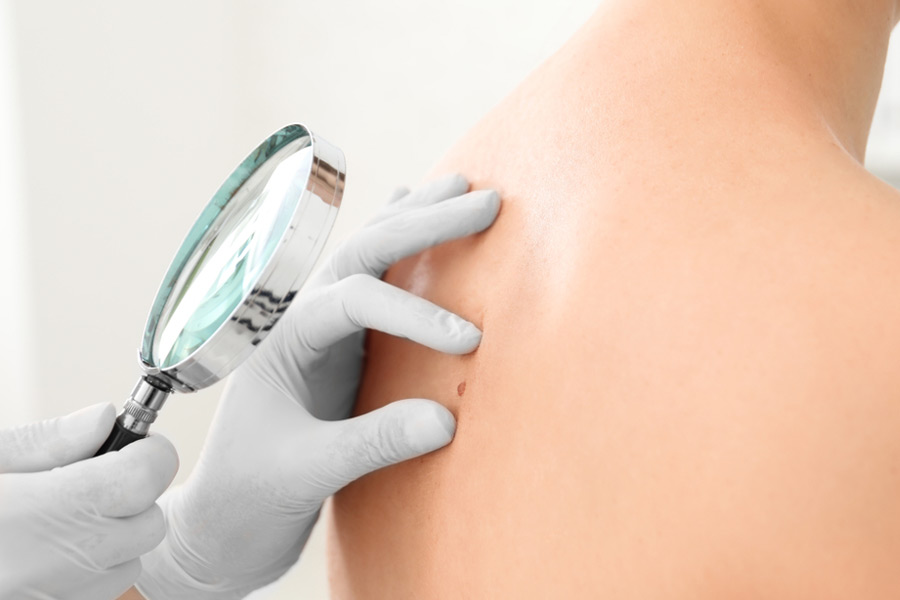Skin cancer refers to the abnormal growth of skin cells and is the most common type of cancer, one that can develop in any part of the body even if it’s not directly affected by sunlight. It occurs when mutations occur in the DNA of skin cells, causing them to grow out of control and clump together into a mass of cancer cells.
This type of cancer primarily develops in the scalp, face, lips, ears, neck, chest, arms and hands, and on the legs, but it is very possible to see skin cancer develop beneath fingernails and even the genital area. There are four types of skin cancers, each of which can be identified in different ways:
- Basal cell carcinoma: most often develops on the head and neck, mainly caused by sun exposure, usually identified by a brown scar-like lesion.
- Melanoma: a large brown-ish spot with darker speckles, this occurs in the melanocytes and is the most serious type of cancer.
- Squamous cell carcinoma: a firm, red nodule caused by either sun exposure, chemical damage, x-ray exposure, or skin burned by other factors.
- Merkel cell cancer: highly aggressive, or fast-growing, rare cancer. It starts in hormone-producing cells just beneath the skin and in the hair follicles, and it is usually found in the head and neck region.
Some risk factors include frequent sunburns, exposure to radiation, family history, moles, skin lesions, and a weakened immune system. As such, it is important to take precautions and safety measures to help combat and prevent skin cancers from forming.
Some prevention techniques include:
- Avoiding the sun during the middle of the day to help avoid the sunburns and suntans that cause skin damage.
- Wear sunscreen year-round to filter out harmful UV radiation, applying it to easily exposed areas.
- Wear protective clothing; as sunscreens don’t provide complete protection from UV rays, it is important to cover the skin with dark, tightly woven clothing.
- Wear sunglasses whenever possible to protect the eyes from UV radiation.
- Avoid tanning beds, as the lights used in tanning beds emit UV rays.
- Use sun-sensitizing medications responsibly, as some common prescription and over-the-counter drugs, can make the skin more sensitive to sunlight.
- Check the skin regularly for new skin growths or changes in existing moles, freckles, bumps and birthmarks.
As always, it is very important to make an appointment with your doctor if you notice any changes to your skin that worry you. Not all skin changes are caused by skin cancer, but the knowledge and expertise of the medical team at MHM Medical Group is here to help guide you through the best ways to protect your skin and prevent illnesses from appearing. You can reach us by calling (321) 373-0505 to learn more about MHM Medical Group’s additional services, or visit our website.


